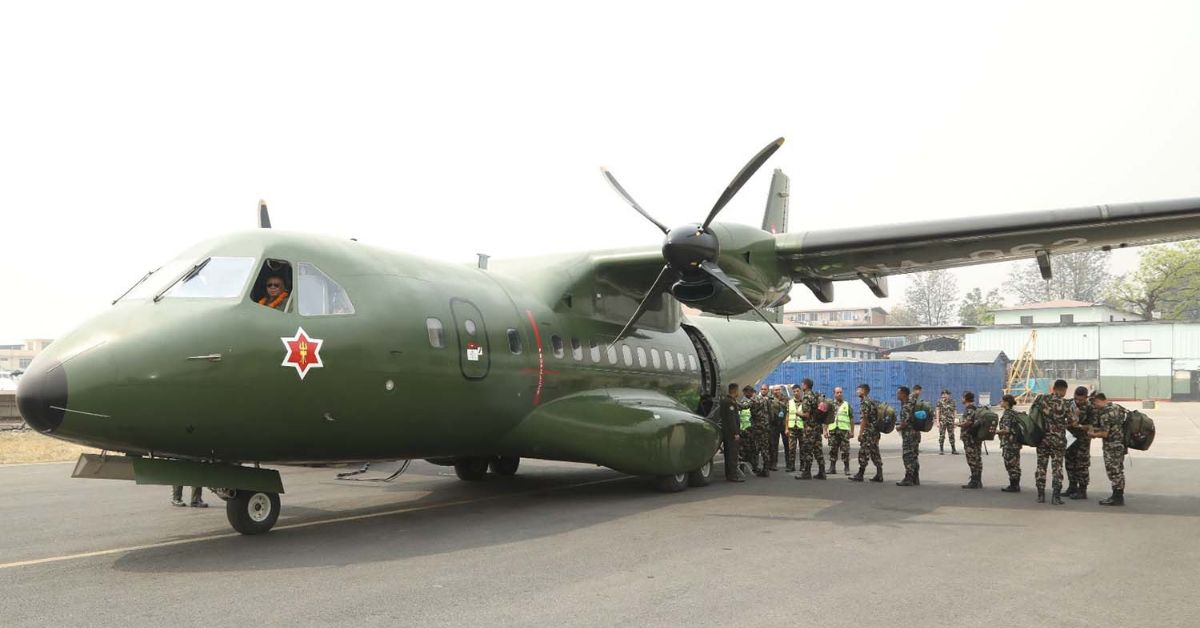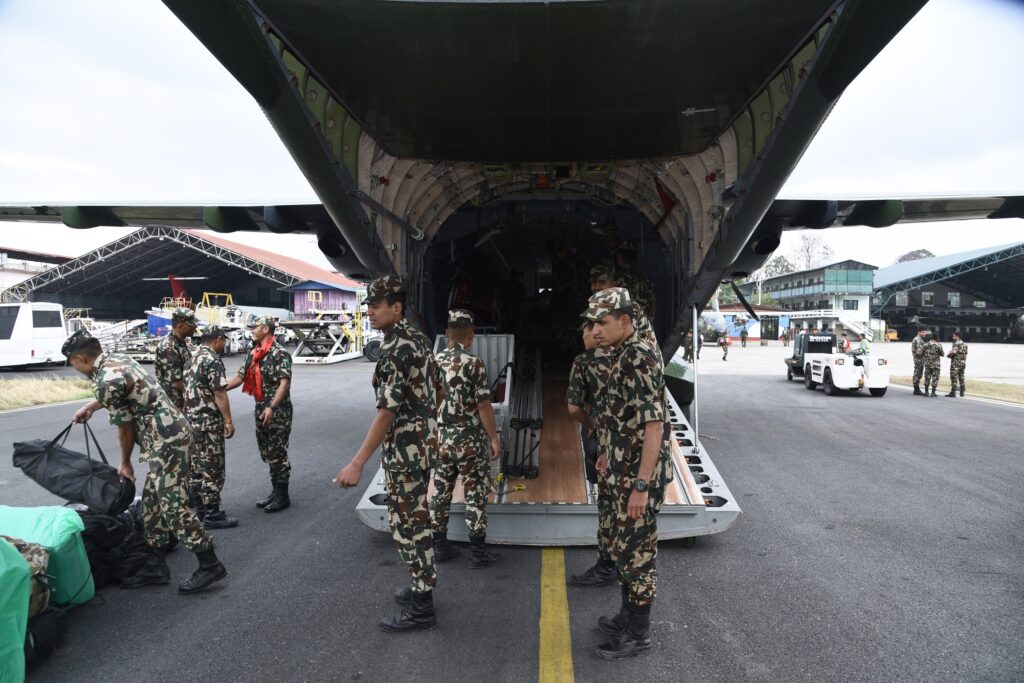

 22.14°C काठमाडौं
22.14°C काठमाडौं

Kathmandu: In the aftermath of a powerful 7.7-magnitude earthquake in Myanmar, the Government of Nepal extended humanitarian support to the nation in crisis – a medical team from the Nepali Army was swiftly deployed to support relief efforts on the ground. The devastating earthquake that struck Myanmar on March 28 claimed more than 3,000 lives and left over 4,500 people injured.
On April 2, the Nepal Army dispatched a humanitarian mission to Myanmar, flying aboard aircraft NA-062 (CN235-220M, CASA). The team, led by Lt. Colonel Ram Chandra Shrestha, included doctors, nurses, paramedics, administrative personnel, and six crew members. The delegation was welcomed by Nepal’s Ambassador to Myanmar, Harish Chandra Ghimire, and Myanmar’s Ambassador to Nepal, U Wai Lwin upon arrival at Nay Pyi Taw International Airport.
“This was one of the most critical moments for us,” said Lt. Colonel Shrestha. “The Government of Nepal made the decision to send us, and we were fully prepared to respond. It was a matter of pride to represent the country and the Army during such a crisis and to offer help to those in need,” he elaborated.

In Myanmar, the Nepali Army team was received by the government officials from Myanmar’s relevant ministries. The team immediately set out to do their work after landing in the capital. Over the course of a week, they provided medical treatment to 1348 earthquake victims, including 27 critical surgeries. They held medical camps for seven days and returned home after ten days.
Despite initial language barriers, communication was eased by the presence of Nepali-origin residents in Myanmar who spoke the Nepali language, enabling the team to navigate the emergency with greater efficiency.
“In Nepal, the Army is always the first responder in times of humanitarian crisis. We carried out similar responsibilities in Myanmar and demonstrated our capabilities during crisis,” Lt. Colonel Shrestha added.
According to Nepal’s Embassy in Myanmar, the scale and scope of damages and destruction caused by the earthquake and its aftershocks have been devastating, resulting in significant loss of lives and properties. In response, the Government of Nepal mobilised the army medical team equipped with essential supplies and medical provisions, to be deployed at hospitals in affected areas for rapid response, medical assistance, and to provide early treatment to the victims.
This mission underscores Nepal Army’s growing role beyond domestic duties, highlighting its readiness and commitment to contributing to international humanitarian efforts in times of need.